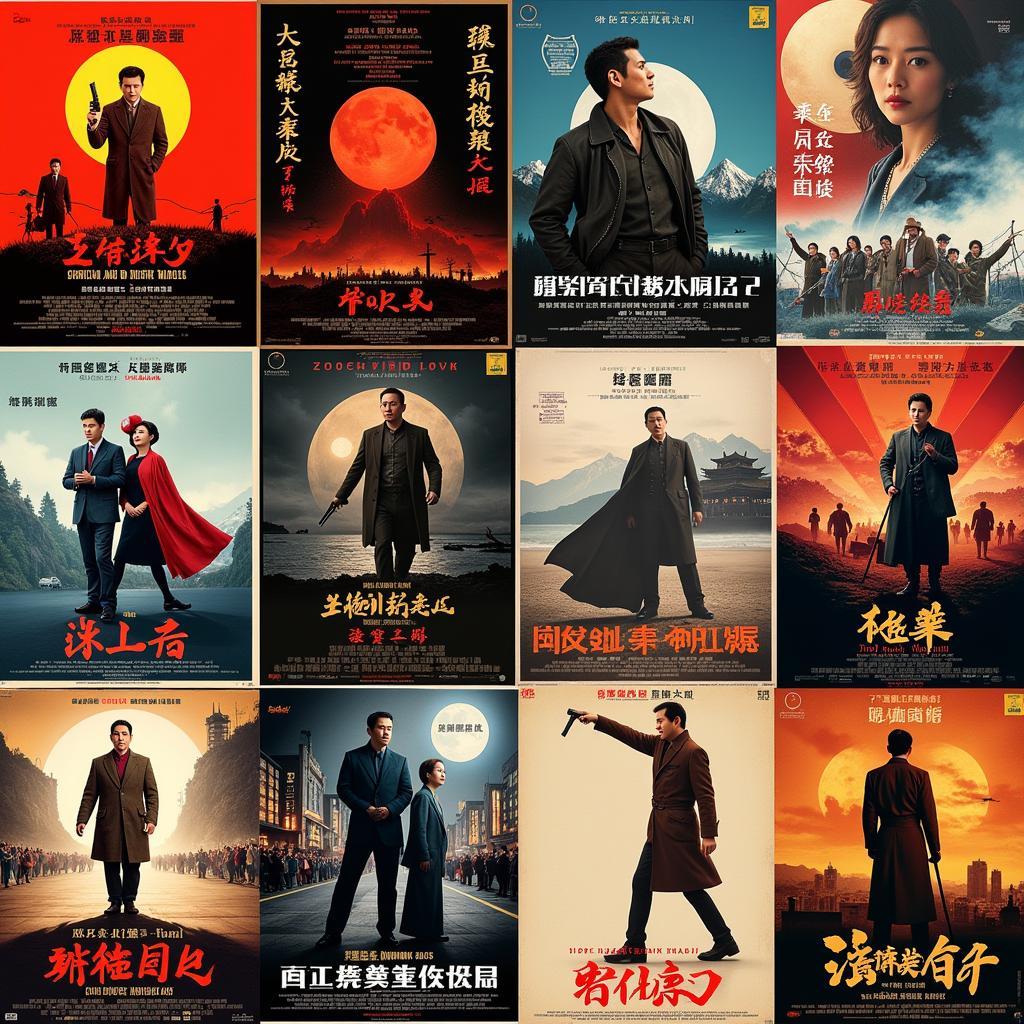The phrase “China Sex Film Movie” often serves as a starting point for individuals curious about Chinese cinema and its portrayal of sexuality. While it’s crucial to acknowledge the sensitivity surrounding this topic and avoid perpetuating harmful stereotypes, examining the evolution of Chinese cinema through a cultural lens can offer valuable insights.
 The Evolution of Chinese Cinema
The Evolution of Chinese Cinema
A Historical Perspective on Depictions of Intimacy in Chinese Film
Chinese cinema, much like its global counterparts, has grappled with the depiction of sex and intimacy throughout its history. From the conservative early 20th century to the more liberalized post-Mao era, societal norms and political climates have significantly influenced how filmmakers approach these themes.
For example, the Cultural Revolution (1966-1976) led to a period of strict censorship, virtually eliminating any form of sexual expression on screen. However, the economic reforms of the 1980s ushered in a new wave of filmmaking, characterized by greater artistic freedom and a willingness to explore previously taboo subjects.
“The complexities of portraying intimacy on screen are often a reflection of a society’s evolving values and understanding of human relationships,” notes Dr. Li Wei, a film scholar specializing in Chinese cinema. “Analyzing these portrayals can offer a glimpse into the cultural anxieties, desires, and power dynamics at play during specific historical periods.”
The Rise of Independent Cinema and Diverse Narratives
 Independent Chinese Filmmakers Breaking Boundaries
Independent Chinese Filmmakers Breaking Boundaries
The late 20th and early 21st centuries witnessed a surge in independent filmmaking in China. This movement brought forth a new generation of directors eager to challenge conventions and explore unconventional narratives, including those centered around sexuality.
Films like “Farewell My Concubine” (1993) and “In the Mood for Love” (2000) garnered international acclaim for their nuanced and emotionally resonant portrayals of love, desire, and societal pressures. These films, while not explicitly graphic, offered a glimpse into the complexities of human relationships within specific cultural contexts.
Navigating Censorship and Finding Artistic Expression
Despite the liberalization of certain aspects of Chinese society, censorship remains a significant factor influencing filmmaking. The Chinese government, through its film censorship boards, exerts considerable control over what content reaches audiences.
Filmmakers often resort to symbolism, metaphor, and subtle visual cues to convey themes of sexuality and intimacy within the confines of censorship. This has led to a unique cinematic language where viewers are encouraged to read between the lines and interpret subtext.
The Influence of Globalization and the Digital Age
 Globalization and the Digital Landscape of Chinese Film
Globalization and the Digital Landscape of Chinese Film
The advent of the internet and the increasing accessibility of international cinema have had a profound impact on Chinese filmmaking. Exposure to diverse cinematic styles and narratives has influenced both established and emerging directors.
Furthermore, the rise of streaming platforms has created new avenues for filmmakers to reach audiences both domestically and globally. This has led to greater experimentation and a willingness to push boundaries, even within the constraints of censorship.
FAQs about Chinese Cinema and Depictions of Intimacy
Q: Are there films that explicitly address LGBTQ+ themes in Chinese cinema?
A: While depictions of LGBTQ+ relationships remain a sensitive topic subject to censorship, there are independent films that explore these themes with nuance and sensitivity. However, these films often face challenges in securing wide releases.
Q: What are some reputable sources for learning more about Chinese cinema and its history?
A: Academic journals dedicated to film studies, online databases like IMDb and MUBI, and film festivals specializing in Chinese cinema are excellent resources.
Q: How do cultural values influence the portrayal of intimacy in Chinese films compared to Western cinema?
A: Cultural values surrounding family, tradition, and societal expectations significantly influence the portrayal of intimacy in Chinese films. While Western cinema often emphasizes individualism and explicitness, Chinese cinema tends to prioritize subtlety, symbolism, and emotional restraint.
Exploring Further:
For a deeper dive into specific subgenres and themes:
This exploration of “china sex film movie” aims to provide a nuanced understanding of the complexities surrounding this topic. By examining the historical context, cultural influences, and artistic choices made by filmmakers, we can appreciate the evolution of Chinese cinema and its ongoing dialogue with societal norms and artistic expression.
